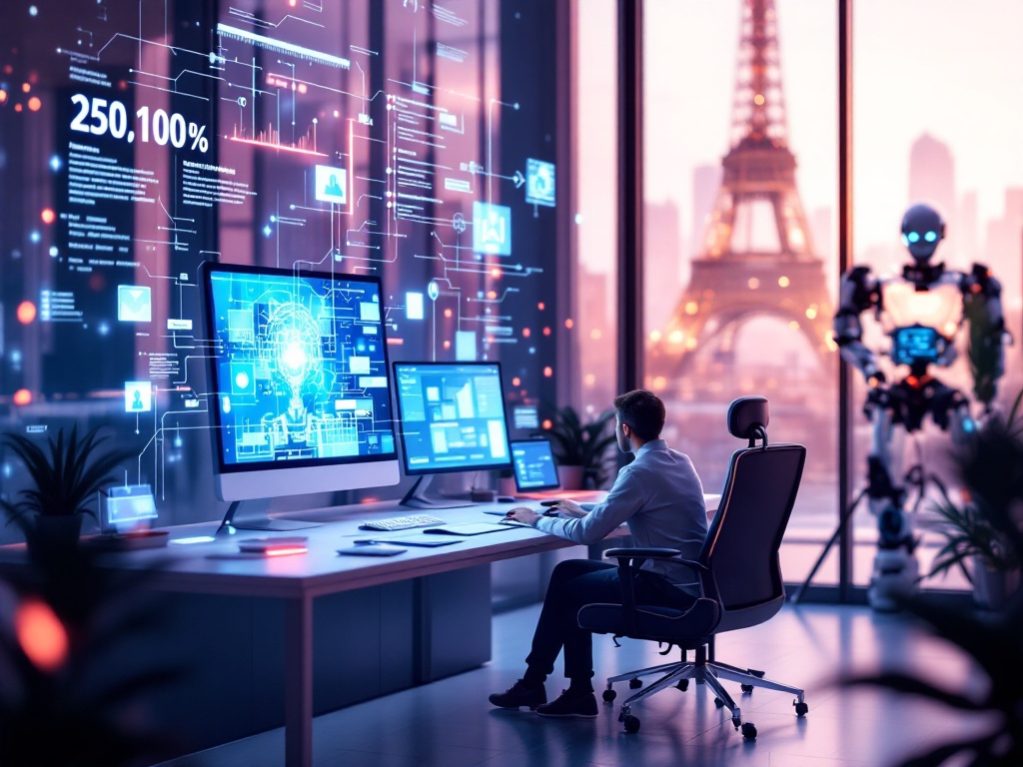AI in the Workplace: Adapting to a New Era

As Artificial Intelligence (AI) continues to advance, its presence in the workplace is becoming increasingly prominent. From automating routine tasks to enhancing decision-making processes, AI is reshaping how businesses operate and how employees perform their roles. In this post, we’ll explore the impact of AI in the workplace, the challenges it presents, and how professionals can adapt to thrive in this new era.
The Impact of AI on the Workplace
AI technologies are being integrated into various aspects of the workplace, offering numerous benefits:
-
Automation of Routine Tasks:
- AI can handle repetitive and mundane tasks, freeing up employees to focus on more strategic and creative work.
- Examples include data entry, scheduling, and customer service inquiries.
-
Enhanced Decision-Making:
- AI algorithms analyze vast amounts of data to provide insights and recommendations, supporting more informed decision-making.
- This is particularly valuable in areas like finance, marketing, and supply chain management.
-
Improved Productivity:
- By automating tasks and providing real-time insights, AI boosts productivity and efficiency across teams.
- Employees can achieve more in less time, driving business growth.
-
Personalized Experiences:
- AI enables personalized customer experiences by analyzing preferences and behaviors, enhancing satisfaction and loyalty.
- In HR, AI can tailor employee development programs to individual needs.
Challenges and Considerations
While AI offers significant advantages, its integration into the workplace also presents challenges:
-
Job Displacement:
- As AI automates certain roles, there is a risk of job displacement, particularly in industries reliant on routine tasks.
- However, new roles are emerging that focus on AI management and oversight.
-
Skills Gap:
- The rapid adoption of AI technologies requires a workforce equipped with new skills, such as data analysis and AI system management.
- Continuous learning and upskilling are essential to remain competitive.
-
Ethical and Privacy Concerns:
- The use of AI raises ethical questions, particularly regarding data privacy and algorithmic bias.
- Organizations must ensure transparency and fairness in AI applications.
Adapting to an AI-Driven Workplace
To thrive in an AI-driven workplace, professionals can take proactive steps:
-
Embrace Lifelong Learning:
- Continuously update skills and knowledge to stay relevant in a rapidly changing environment.
- Online courses, workshops, and certifications can help bridge the skills gap.
-
Focus on Soft Skills:
- Skills like creativity, emotional intelligence, and problem-solving are increasingly valuable as AI takes over routine tasks.
- These skills are difficult for AI to replicate and are crucial for leadership and innovation.
-
Collaborate with AI:
- View AI as a tool to enhance your work, not as a replacement.
- Leverage AI to augment your capabilities, enabling you to achieve more and make better decisions.
Conclusion
AI is not just transforming the workplace; it’s creating a new era of work. By understanding its impact and adapting to its challenges, professionals can harness the power of AI to drive innovation and success. Embracing change and continuous learning will be key to thriving in this AI-driven world.
